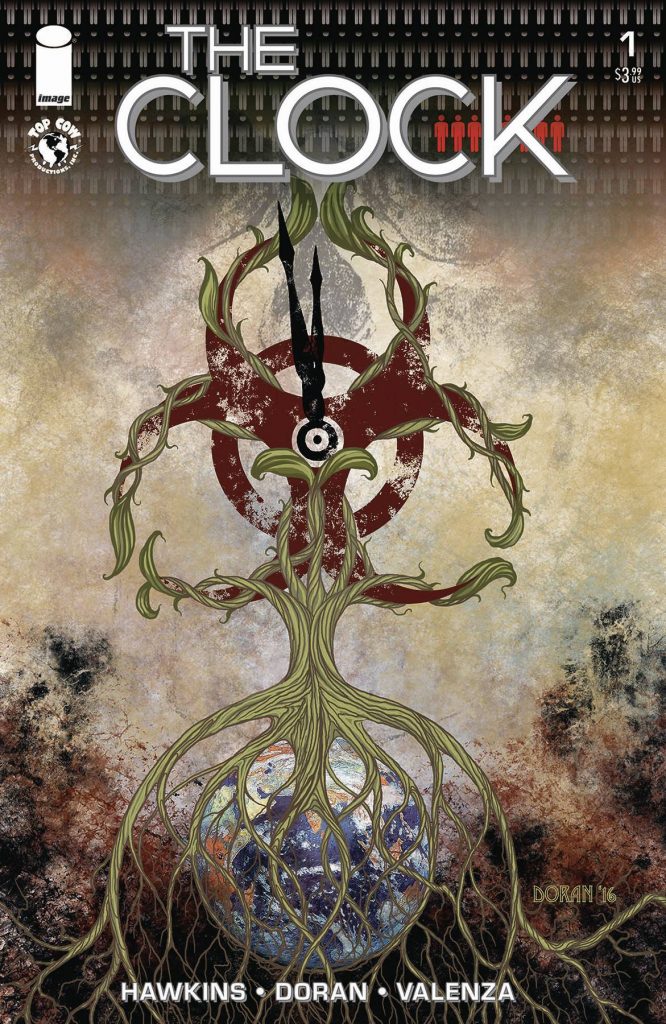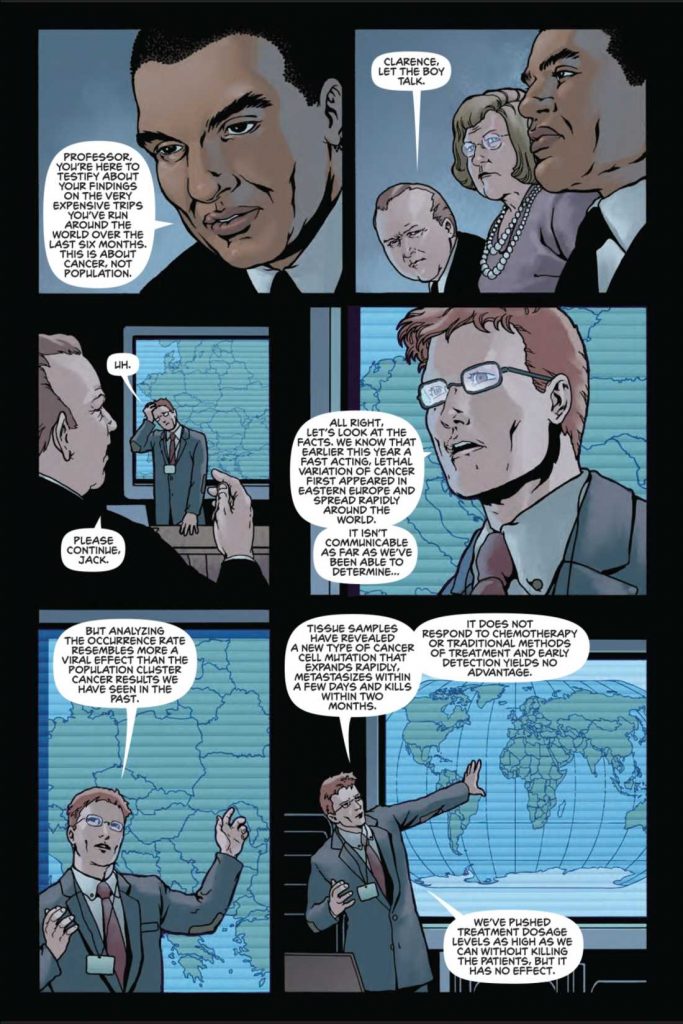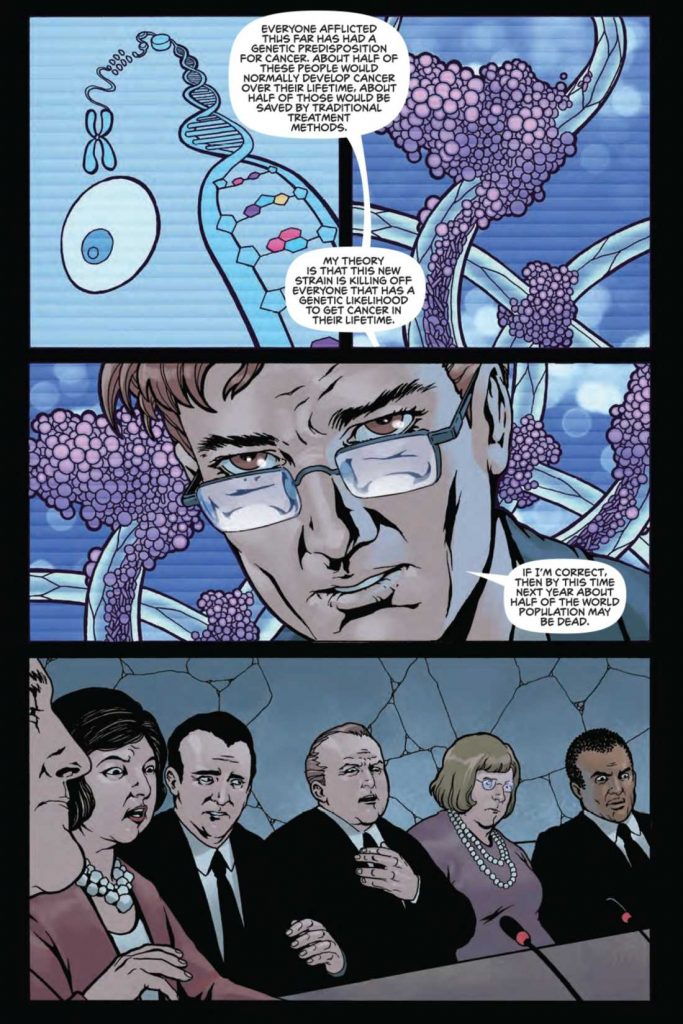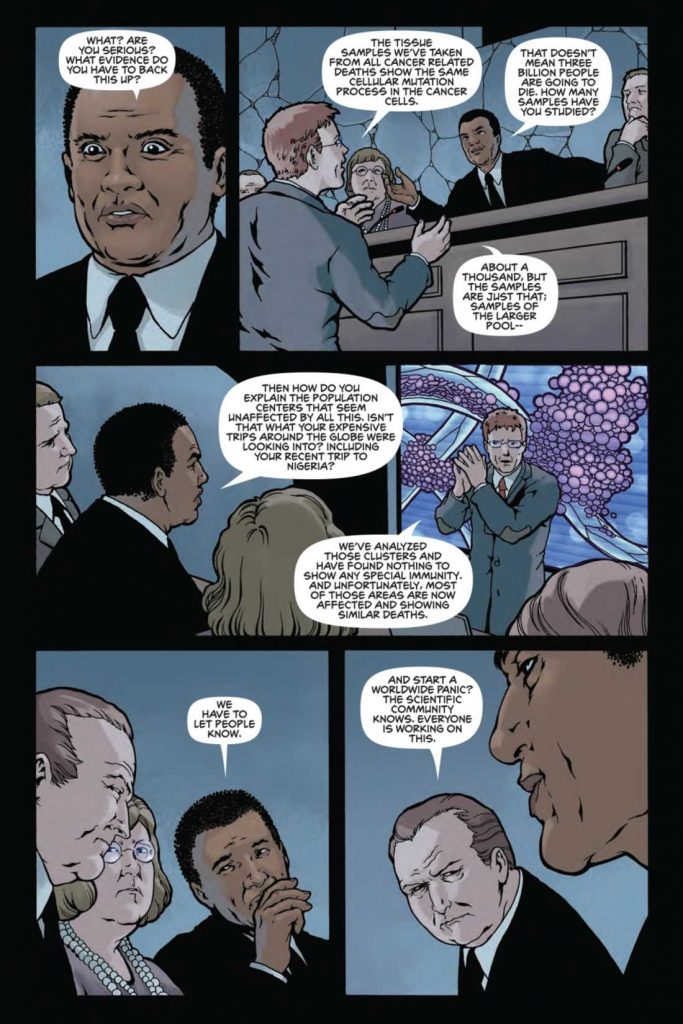
Writer: Matt Hawkins
Artist: Colleen Doran
Colorist: Bryan Valenza
Letterist: Troy Peteri
Cover Artist: Colleen Doran
Publisher: Image Comics/Top Cow Productions
Price: $3.99
Available: Now (January 8)
People around the world are dying at a horrifying rate of a new, treatment-resistant cancer virus. A cancer that metastasizes in days, and kills within two months. Research suggests the disease targets those who have a genetic predisposition toward cancer.
Which translates to roughly half the world’s population, all of whom could be dead in the next 12 months. The world’s population clock at the Smithsonian has already started declining. And the few, apparently resistant tribal populations in Africa? The ones the nations’s leading oncology researcher was sent to study for a possible treatment or vaccination? Yeah, not so much: now, they’re dying too. As did the researcher’s wife.
And members of our own government seem to know something about it…perhaps even something to do with how it came to be.
Thank your higher power it’s a comic from Matt Hawkins, president of Top Cow Comics, and Colleen Doran I’m writing about, and not a CNN or Fox News report.
Out now from Top Cow/Image Comics is the first issue of The Clock, the latest of Hawkins’ string of what he describes as “hard science fiction” thrillers. Only this one, with its examination of cancer, hits a little closer to home for both author (his mother was diagnosed with breast cancer when he was 17, then again with three other forms of cancer in the ensuing three decades) and artist (both of her parents were diagnosed, at the same time, several years ago).
If you’ve not read Matt Hawkins (Postal, Golgotha, Stairway, Wildfire, Symmetry, Think Tank among others) and you’re a fan of intelligent, scientific, hi-tech thrillers, you have from this point forward no one to blame but yourself; he is a master. Think Michael Crichton, only in comic book format and if anything, better informed (and to be clear—this is NOT a slight on Michael Crichton)—and with a handy “science class” section at the end of each book, detailing the (typically exhaustive) research he did to inform his tale. In The Clock, we get a primer, complete with online references and videos, on cancer and its potentiality for weaponization. Heady—and very scary—stuff.

And fascinating as all get-out.

In issue one, we engage a world-wide plague in media res. Jack, our protagonist, is a Georgetown professor studying the tribes of Nigeria to discern why they are mysteriously resistant to the viral cancer strain that is killing the rest of the world. The writing is tight and tense, despite covering an impressive amount of dense information ranging from cancer to overpopulation. And it’s entirely captured in dialogue—the only info boxes address place. Kudos to letterer Troy Peteri on making that work.

Hawkins’ writing goes nowhere, however (other than, you know, a really good Michael Crichton novel), without Colleen Doran’s linework and Bryan Valenza’s colors. Fresh off of her adaptation of Neil Gaiman’s Snow, Glass, Apples (a gorgeous bit of artistry with one of my fave authors, if I do say so myself), Doran’s work is more grounded, her assignment more reality-based this time around. And she nails it. Matching the tension of Hawkins’ tale panel for panel, she deftly conveys the roiling emotions of a world in crisis, without overdramatizing or making things maudlin. An expert’s touch.
As is often the case in a new series, issue one is all about setting mythology and tone, and a brief introduction to the key players. Mission accomplished. Other than the broad strokes—world in crisis, shady government dealings, possible weaponization or at least intentional mutation of cancer—we get precious little of the characters and plot moving forward; that’s what issues two and three are for.
And based on what we got from issue one, I can’t wait for them.
You can find The Clock #1 at your local comic store, on comiXology or via Amazon. Get reading, true believer, and then, like me, wait on bated breath for the next installment.
Or else do as Hawkins suggests, and carpe diem. ‘Cause in a world firmly entrenched in a handbasket, there may not be a crastinuum.
Score: 12 (of 13)
Review by Andy Patch, thePullbox.com